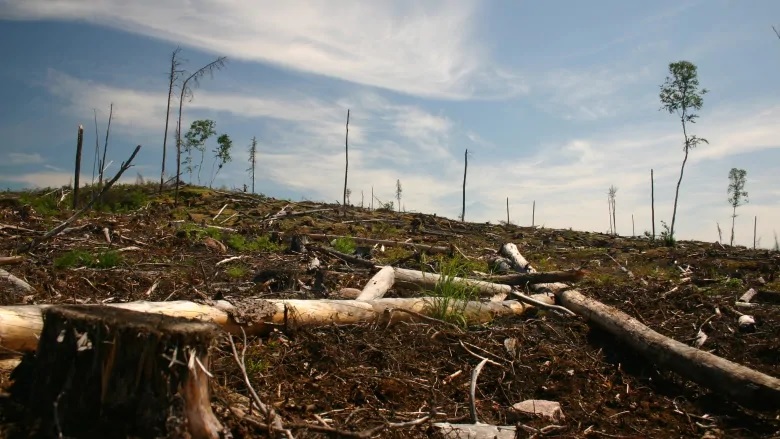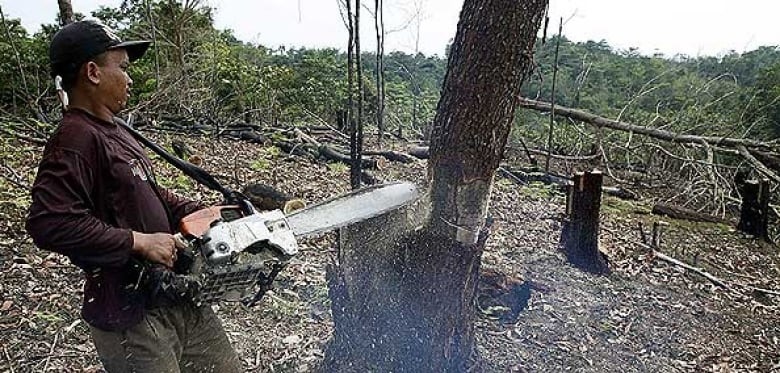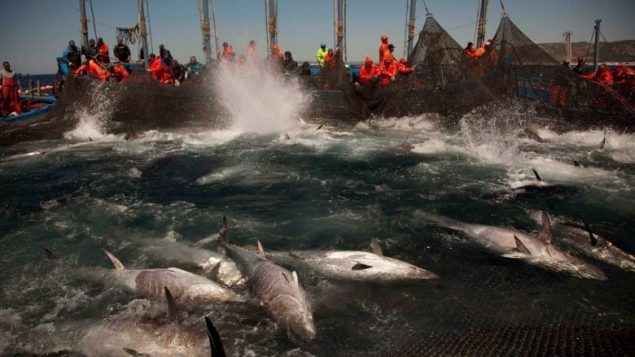A million species could disappear
That dire warning comes from the latest extensive report from the United Nations.
They gathered scientists from around the world to contribute to the first comprehensive report on the state of the world’s biodiversity.
The report indicates that unless immediate change begins, humanity itself could face serious challenges around the world.
Jeremy Kerr (PhD), is a professor of biology and research chair in macro ecology and conservation at the University of Ottawa
ListenThe report says in no uncertain terms that nature is declining at a rate never seen before in human history. The report was prepared by the U.N. sub committee, the Intergovernmental Science-Policy Platform on Biodiversity and Ecosystem Services (IPBES) and involved 145 scientist authors with contributions from hundreds of other scientists and researchers from countries around the world. The final report had to be approved by the 109 member countries.

Professor Jeremy Kerr (PhD) biology. University of Ottawa (supplied)
At over 1,500 pages, it is expected to be released later this year
IPBES Chair, Sir Robert Watson, is quoted in the media release saying, “The overwhelming evidence of the IPBES Global Assessment, from a wide range of different fields of knowledge, presents an ominous picture,“The health of ecosystems on which we and all other species depend is deteriorating more rapidly than ever. We are eroding the very foundations of our economies, livelihoods, food security, health and quality of life worldwide”.

When a virgin forest is cut, it creates radical changes in ecosystems and wildlife. (Freegrassy.net)
Habitat loss, and unsustainable practices such as overfishing, logging, and resource extraction are major problems.
Since the 1600’s almost 700 species with backbones have become extinct, while over 550 domestic animals used for food are gone, along with 40 percent of amphibians, more than a third of marine mammals, while nearly a third of sharks and fish are threatened with extinction.

Loss of forest cover is not just a concern in Canada’s boreal forest but around the world including both legal and illegal clearings in the Amazon and around the world. Here,A worker cuts an acacia tree during an area clearing near Bukit Tiga Puluh natural forest in Riau, Indonesia, in April 2008. (Achmad Ibrahim/Associated Press)
Professor Kerr likens the situation to that of humanity on top of a scaffold but knocking out the biodiversity support beams and waiting to see what happens.

Professor Kerr likens our actions regarding the environment and species to knocking out natural structures that support us as if we were on scaffolding and taking out support posts beneath us, It is similar perhaps to the game of Jenga (Derek Mawhinney wiki commons)
The report notes 18 ways in which nature helps humans, but that 14 of them are declining including nature’s ability to provide clean air and water, and good soil.
IPBES youtube on Land Degradation (one of several such videos)
Amidst the dire warning of the report there is optimism however. Professor Kerr notes that if each of us makes small individual efforts at conservation, or a slight change of diet, or travel habit, the cumulative effort will be very helpful. The report says that if concerted action is taken by governments around the world the predicted damage can be limited if not halted.
Additional information
- IPBES- Media release (includes certain data and video links)
- Associated Press (via CBC): May6/19: Nature in the worse shape in history
- Ecologist: E Beament: May 7/19: Action needed to stop biodiversity collapse
- CNN: I Gerretsen: May 7/19: 1 Million species threatened because of humans
- Washington Post: (via Science Alert): D Fears:Main points from the report
- CNN: A Stambaugh: Feb 20/19: Australian mammal first extinction from climate change
- Asia-Pacific Journal: R Gilhooly: Aug 1/16: Facing extinction, Pacific Bluefin







For reasons beyond our control, and for an undetermined period of time, our comment section is now closed. However, our social networks remain open to your contributions.